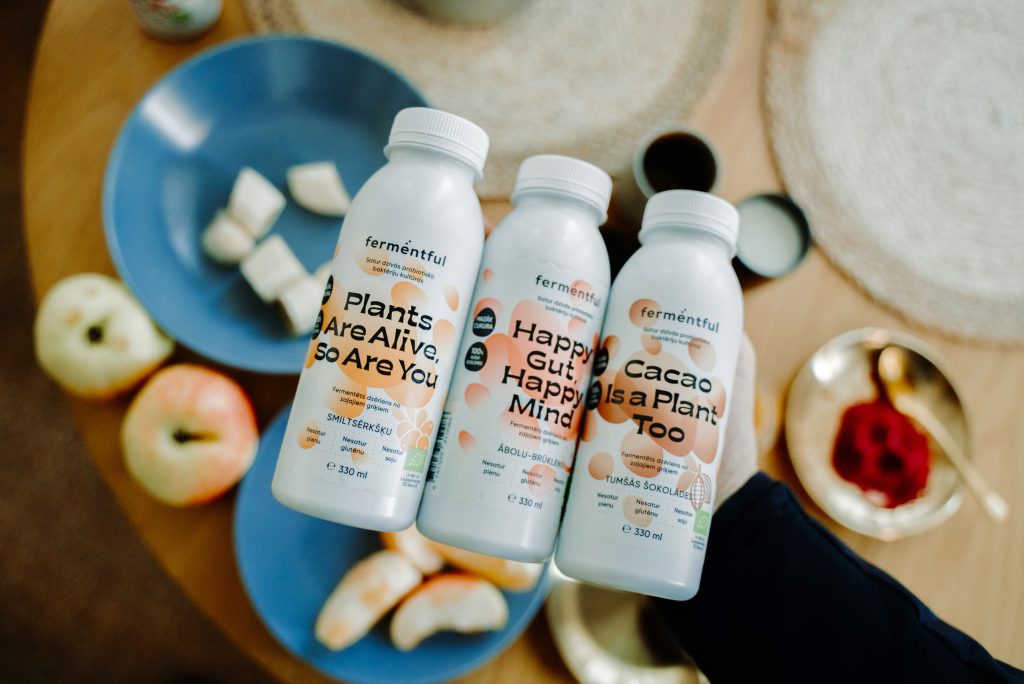
Every year new science publications show that the gut microbiome is related to some other previously unknown factor of our health or the functioning of some organ. We are responsible for those we have tamed – how well do we take care of these friendly bacteria of ours?
Fundamentals of microbiome health
“Intestinal microbiome can be divided into two groups,” says Eva Moreino, a resident doctor in family medicine at Veselības centrs 4. “There is a permanent microbiome that is persistent and does not really undergo changes. It is formed even before birth, and therefore it is valuable if women planning a pregnancy start to think about how their health will affect the health of the child. The second group is the unstable microbiome – it changes significantly during life, reacts to stress, depends on nutrition and medication. It is this part of the microbiome that can be changed with the help of probiotics.»
There can be various health problems caused by an unhealthy microbiome – usually gastrointestinal pain, bloating and heaviness, acid reflux, changes in bowel movements, and impaired absorption of micronutrients from food. That all is easy to understand, but there can also be issues that are not directly related to the stomach – lower immunity, lack of energy, worse mood, skin problems. The microbiome is still understudied, but scientists have observed that it is related to our health in many different ways. “Unfortunately, this is a large topic, which the family doctor does not have time to talk about during the average visit on state budget – at best, we can spare it a few words,” emphasizes dr. Moreino.
Microbiome issues can also be a side effect of medication. Drugs such as proton pump inhibitors, painkillers, and especially antibiotics microbiome (unfortunately, there are people who want to start using them as soon as they get the slightest cold) can negatively affect the microbiome. This is one of the reasons why antibiotics are prescription drugs and their use should be decided by a doctor. Dysbacteriosis (aka dysbiosis) can be divided into three types – loss of good gut bacteria, overgrowth of pathogenic bacteria, and loss of gut microbiome diversity. Antibiotics have a particular effect on this diversity, and the effect can persist even for several years. So what to do when our microbiome is not doing well?
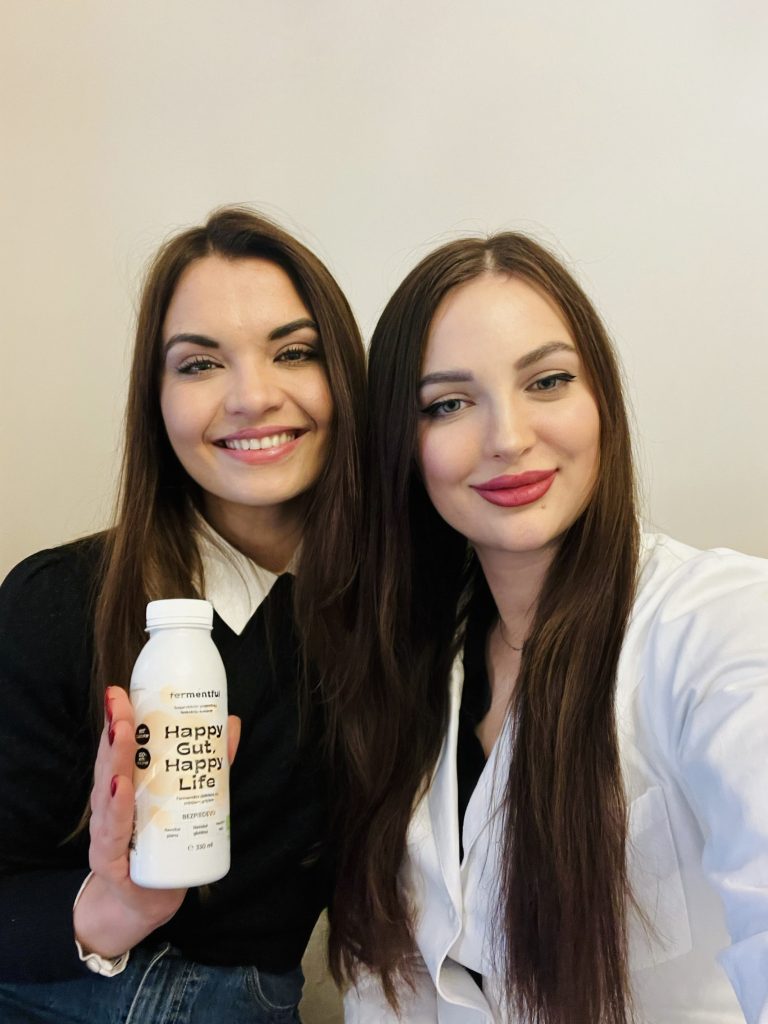
Left – Anda Penka, Founder and CEO of Fermentful; Right – Eva Moreino, Resident Doctor in Family Medicine
From green buckwheat milk to pant-based kefir drink
“From the very beginning, our goal was to create a healthy food startup with the goal of becoming a large producer,” says Anda Penka, founder of Fermentful. “The company was founded in 2020 and we have since grown to an amazing team.” According to Anda, at the beginning of the project, the plan was to just produce green buckwheat milk: «I really like coffee and I wanted to add some cool plant-based milk to it, which could create creamy foam on cappuccino. It seemed that Latvia had a great potential in the creation of such a product but the field of vegetable products is quite undeveloped. I wondered – why is that?”
Anda used her previous work experience in the food industry and decided to contact the Latvia University of Life Sciences and Technologies – an institution that is the local leader in knowledge on creating innovative food and industrially producing it. Turned out that there was already a plant milk production model for peas, hemp, oats and the like, but an important catch was that projects of this type are very financially intensive. “They immediately asked us – do we even have the budget to implement the production. We didn’t, but we didn’t want to drop the idea,» Anda adds.
In order to move the project further, Fermentful got a LIAA innovation voucher, and decided to validate the product in international food innovation accelerators: “They noticed us – we regularly made it to the second or even third round. Once we even got to the finals, and one of the jury members asked – how do we plan to compete with plant-based milks, which had already stabilized on the market at that time. It was a good point. We wanted to focus only on green buckwheat, but it wasn’t enough, and since my business partner was fascinated by fermentation at the time, we decided to answer – our next step would be to ferment this green buckwheat milk and thus produce a fermented plant-based kefir drink, rich with probiotic bacteria. At that point it was still kind of a shot in the dark, but after further researching the market we realized that it’s a really good niche where there aren’t many prominent players. Together with food technologists, we tackled this new product, and since then our trajectory has not changed.”
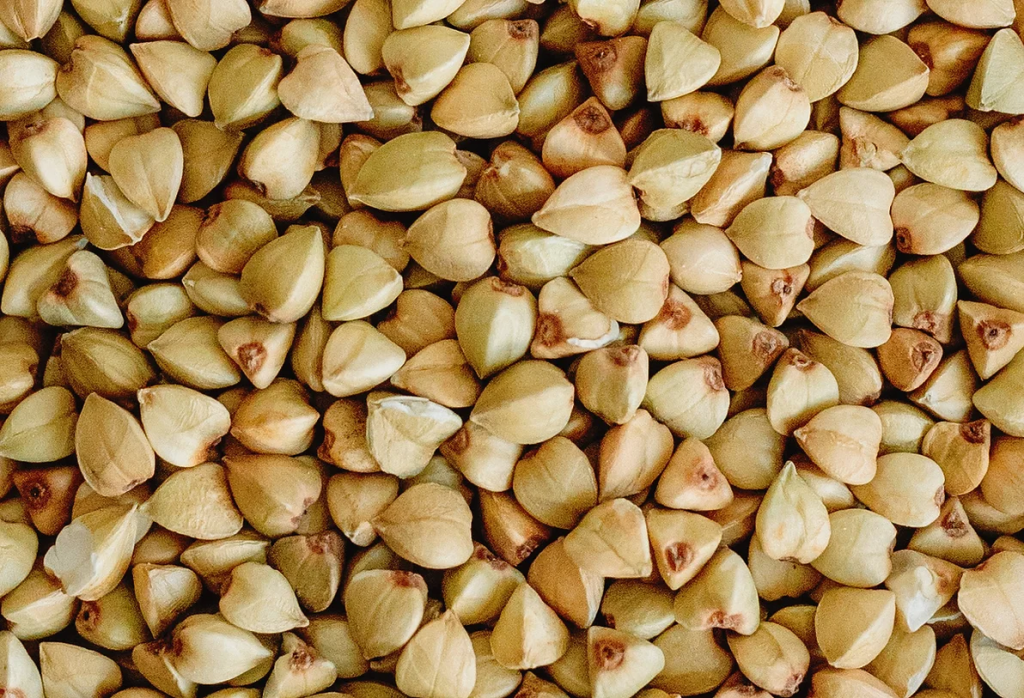
Scientifically based value
“From the very beginning, our goal was to create products that not only correspond to global consumer trends, but are also scientifically valuable for good health, as well as to ensure that our economic activity does not have a negative impact on the environment,” explains Anda. “That’s why we collaborated with local food scientists and technologists literally from the first day. We performed analyses to determine vitamins, amino acids and other nutrients. We tested the product in an artificial stomach so that we could see to what extent the probiotics in the product would be absorbed in the digestive system.”
The choice of green buckwheat was based on the fact that a lot of it is grown by organic farms in Latvia. It is also a very nature-friendly agricultural crop – capable of enriching the soil with various important nutrients so that the field is not depleted. Green buckwheat a high nutritional value – high protein content, all the necessary amino acids, rich in iron and other trace elements. Also, since the product is fermented, it contains not only good bacteria, but also significantly increases the ability of all those nutrients and vitamins to be absorbed by the body. Finally, it does not contain gluten, which makes green buckwheat a good product, for example, for patients with celiac disease.
Anda continues about the development of the company: “Currently, we are continuing indirect cooperation with Daina Eglīte-Antone, a doctoral student of the Latvia University of Life Sciences and Technologies, who is a huge support in our efforts to improve the functional properties of the product – to improve the consistency and taste profile, while maintaining a 100% natural composition. We are investigating the possibility of using the technology of encapsulated probiotics, which would help the probiotics in the product to survive in the digestive tract and ensure their fuller absorption in the body. This technology would also allow us to better develop our export ability, because in this way we would ensure a longer shelf life for the product. Daina is also studying fermented green buckwheat in depth, allowing us to better understand its health-promoting properties. For example, during the fermentation process of green buckwheat, short-chain fatty acid butyrate is produced, which “lubricates” the digestive system and helps with the absorption of nutrients. Another bonus – the fermented buckwheat fibers in the product create a feeling of satiety, helping people achieve healthy weight goals.»
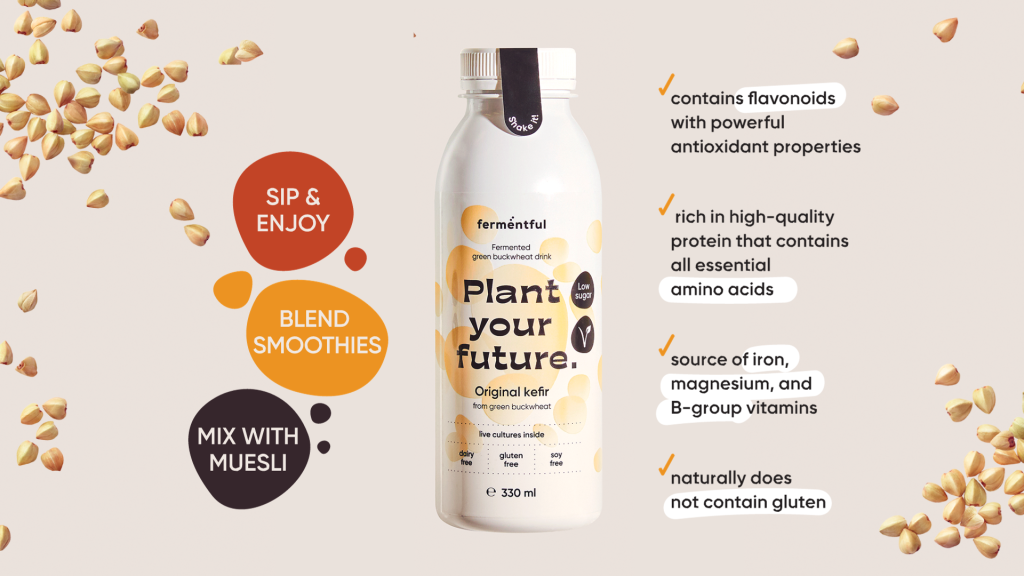
Always in every conversation – a healthy lifestyle
“Almost any person should improve their microbiome, because its health is essentially related to a healthy lifestyle,” emphasizes dr. Moreino. “Unfortunately, this means that you have to take care of the health of the microbiome all the time, and you can’t use some probiotics bought at the pharmacy for a month or two and then hope that everything will be great with the microbiome for a long time.”
The family doctor also mentions that there is currently no specific algorithm for prescribing probiotics in capsules. The latest are 2023 guidelines, which recommend their use in certain situations – in cases of bloating and pain, to improve immunity, if there is diarrhea, etc. These guidelines also highlighted the specific strains of probiotics that should be recommended, and emphasized the importance of consulting a doctor rather than just buying any capsule. It doesn’t help that, unfortunately, most microbiome tests are expensive.
“That’s why the main recommendation is permanent lifestyle changes – sleep well, reduce unhealthy processed foods and consume more vegetable products (as well as a variety of diet in general), more physical activities, less alcohol, don’t smoke. Without those things, then the use of probiotics will at best help a little for the time of use – after that, returning to the usual tracks,” says dr. Moreino. “According to my experience, in terms of consistency, patients like it better if they are given specific recommendations – then there is a greater chance that they will actually buy and use these products. I heard about Fermentful from acquaintances – I tried it, and it seemed to me a good choice. I wouldn’t recommend something to patients that I wouldn’t like myself. However, it should be noted that it is still a relatively expensive product. Not everyone can afford it, and I often say this – this is a good option if you have the means, but ordinary kefir is also a very good improvement to your diet.”
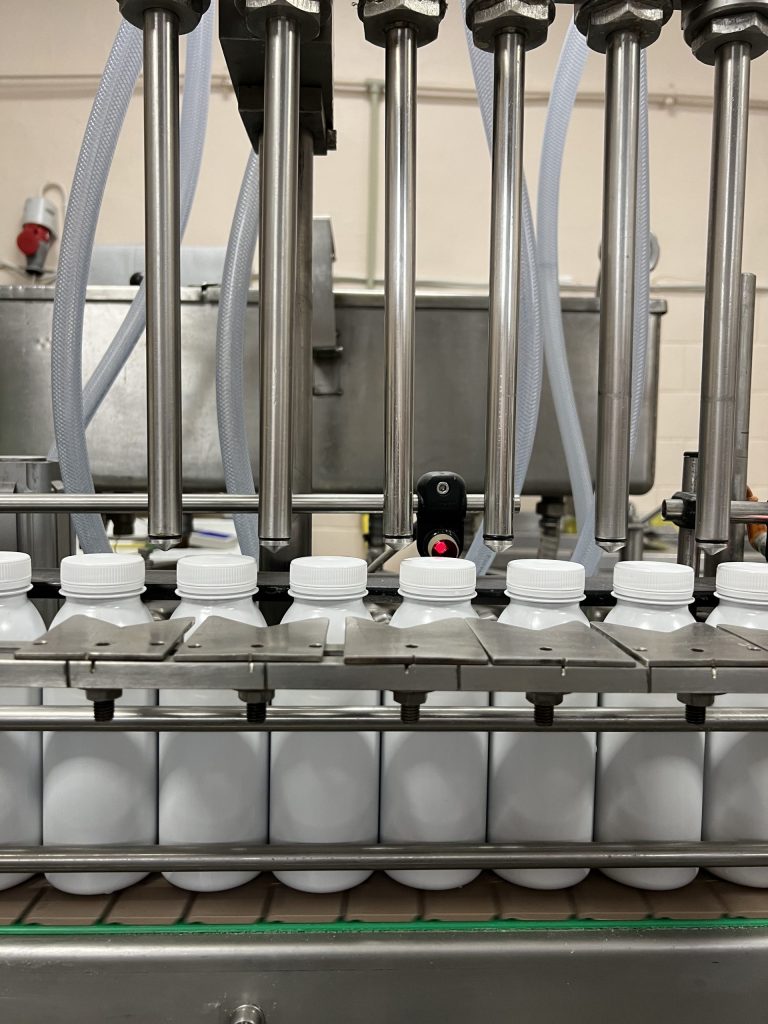
At the production facility of Fermentful
A view into the future
Just at the beginning of June, Anda traveled to Vienna, because Fermentful participated in the innovation program Vienna Startup Package and the almost week-long ViennaUP startup conference, which gathers investors, funds and other members of the ecosystem focused on projects with public benefit. At the same time, Fermentful starts cooperation with Austria-based accelerator Clever Clover, which is focused directly on the direction of innovative food products in the European market and which has already supported more than 50 different food product startups thus far. “It is important for us to build such relations and increase our export volume. Currently, the product can be purchased in Latvia, Estonia and Austria – we soon plan to expand to Poland and Switzerland, as well as to strengthen our position in the entire Baltic region,” says Anda.
More locally, Fermentful is planned to be studied in depth soon by the specialists of the Centre for Nutrition and Dietology of the Riga East Clinical University Hospital, in order to understand its potential in nutritional therapy and assisting with the recovery process for patients with disorders of the digestive system. Also, a few weeks ago, on May 30, the Fermentful organized GUT DAY conference on the health of the gut microbiome was held at the Riga Technical University. “In this way, we want to raise the topic of the intestinal microbiome and its role in our health and well-being more in society,” says Anda.
For now, the product is still in the trial production stage – in the very center of Riga, on Avotu Street. The capacity is around 8-10 tons per month. The main raw material – green buckwheat – is purchased from organic farms around Latvia. In addition to these, the main ingredients are cashews for natural fat and beans for protein. Plus, depending on the taste of the product, berry or fruit powder. “All ingredients are certified organic, because we want to be an environmentally friendly company and promote the availability of organic food,” Anda emphasizes.
“I would like doctors to be more active in promoting the topic of microbiome,” says dr. Moreino. “Patients have often at best heard about probiotics in capsules or special yogurts – often not knowing the difference between probiotics (products that contain good microorganisms), prebiotics (containing substances that the microbiome uses as food) and postbiotics (end products of the microbiome’s digestive processes that can also obtained with fermented products). When I have the opportunity to talk more about it, most patients tell me that it is the first time they have heard of it. And this can also be seen from the statistics – people in Latvia do not have healthy eating habits. We can change that.”
This article was created in partnership with Medicus Bonus – a Latvian magazine for healthcare professionals – in a new series about healthcare innovation happening in Latvia. If you are a doctor, the subscription is free – just write to redakcija@medicusbonus.lv !
